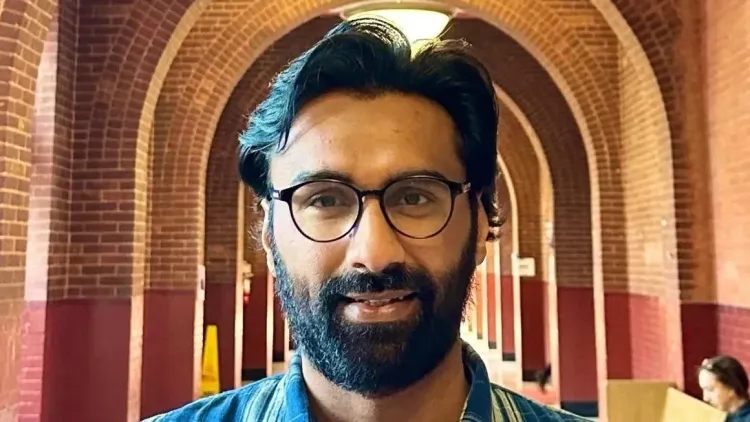Did a Judge Just Order the Release of an Indian Academic Held by US Immigration Authorities?

Synopsis
In a significant ruling, a US federal judge has ordered the release of Indian academic Badar Khan Suri, detained by immigration authorities. This decision underscores the importance of freedom of expression and raises questions about the motivations behind his detention. Suri's case is part of a broader pattern affecting students accused of supporting Hamas.
Key Takeaways
- Judge Patricia Giles emphasized the First Amendment applies to non-citizens.
- The ruling is a significant setback for immigration policies under President Trump.
- Badar Khan Suri's case raises questions about the treatment of academics by immigration authorities.
- The importance of freedom of expression in America is reaffirmed.
- This case could influence future deportation cases involving political beliefs.
New York, May 15 (NationPress) A federal judge in the US has mandated the release of an Indian academic who was detained by immigration authorities and facing the threat of deportation.
Judge Patricia Giles determined on Wednesday that the US government failed to provide evidence that Badar Khan Suri posed a risk to public safety and emphasized his right to freedom of expression, which extends to non-citizens as well.
"The First Amendment applies to non-citizens and does not make a distinction between citizens and non-citizens," she remarked, highlighting that the government's desire to deport him likely stemmed from his opinions and his marriage to a Palestinian-American woman.
US Homeland Security Assistant Secretary Tricia McLaughlin accused Suri of spreading Hamas propaganda and fostering antisemitism on social media.
Suri, who holds a PhD from Jamia Millia University in New Delhi, was a post-doctoral fellow at Georgetown University in Washington, where he taught a course on "Majoritarianism and Minority Rights in South Asia" while researching peacebuilding in conflict zones.
He is married to a US citizen, Maphaze Ahmad Yousef, the daughter of Ahmed Yousef, who was mentioned in a Hindustan Times article cited by Politico as a "senior political advisor to the Hamas leadership".
Suri was apprehended by masked immigration officials outside his residence in a Washington suburb in Virginia in March and was informed that his student visa had been revoked, as per his lawyer.
Following his arrest, he was transferred to a detention facility in Louisiana and later to another in Texas while awaiting deportation.
Suri's legal team had filed a habeas corpus petition to contest his detention in Texas and seek his release.
Government attorneys aimed to relocate the case to Texas, where judges are perceived to be more conservative.
He continues to confront a deportation case in a Texas court.
Judge Giles' decision in Suri's case in Alexandria marks the third significant defeat for the Trump administration's attempts to deport students accused of supporting Hamas, the militant group governing Gaza that has initiated attacks on Israel.
Another judge recently ordered the release of Rumeysa Ozturk, a Turkish doctoral student at Tufts University, arrested similarly to Suri on allegations that her visa was revoked due to her purported support for Hamas in a student newspaper article.
Mohsen Mahdawi, who organized anti-Israel demonstrations at Columbia University and was detained while awaiting deportation, was also released by a judge on April 30.









